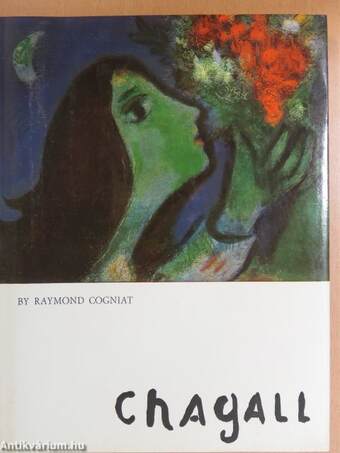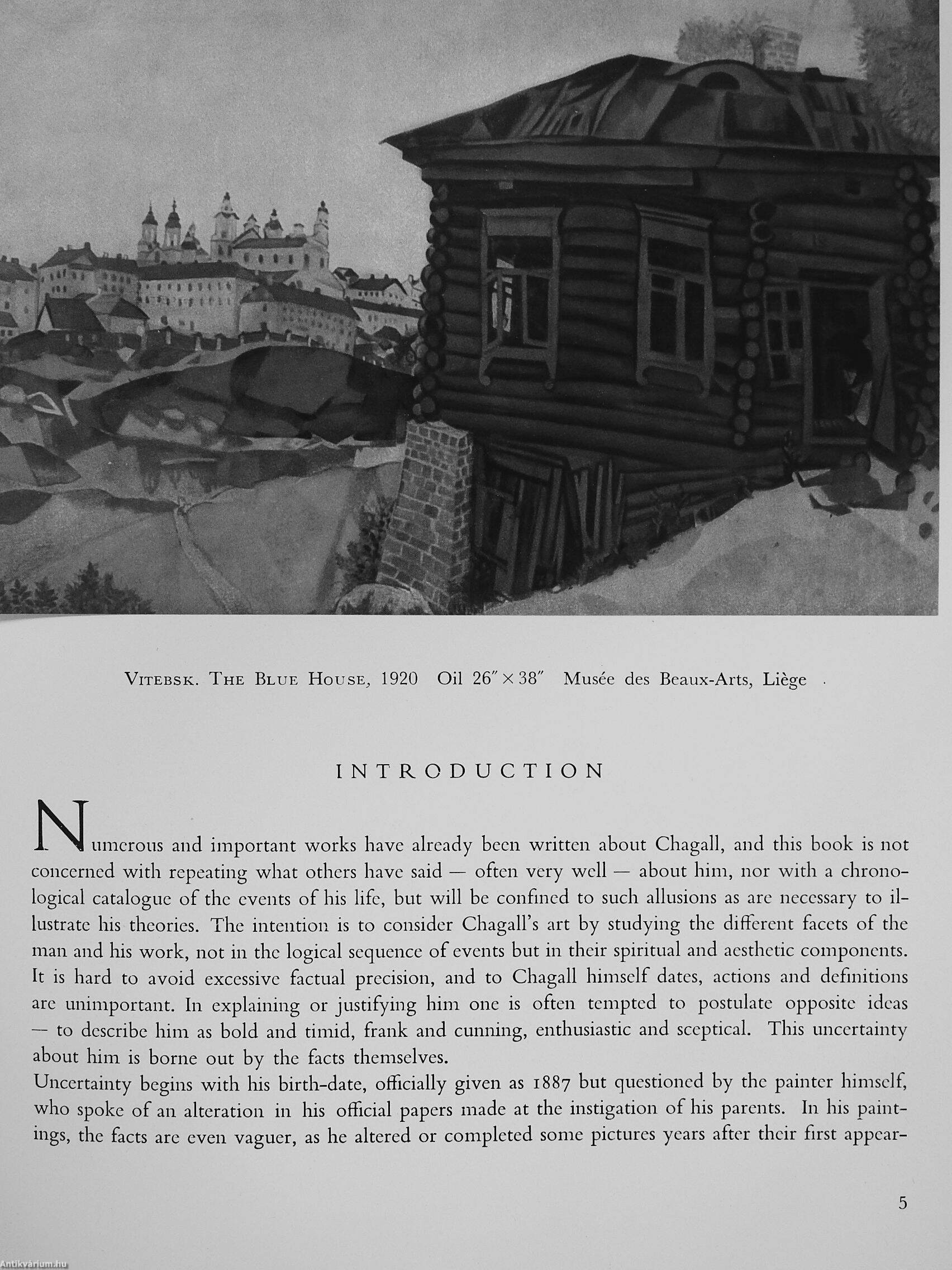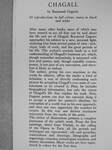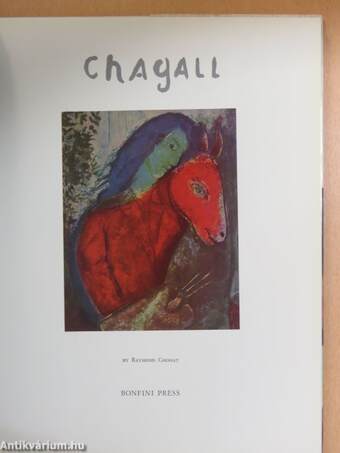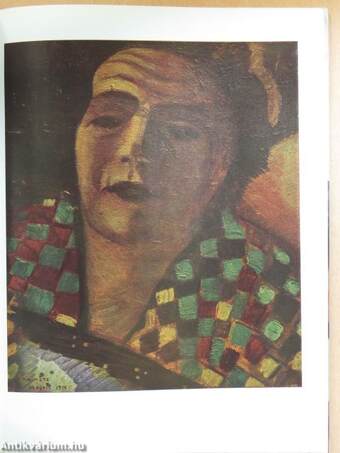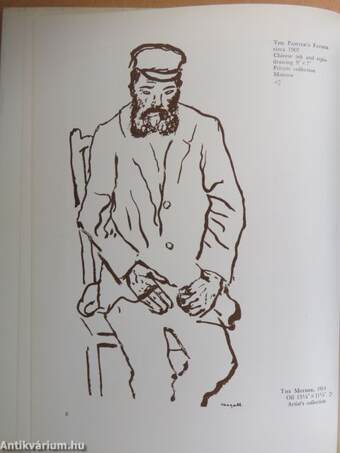1.067.053
kiadvánnyal nyújtjuk Magyarország legnagyobb antikvár könyv-kínálatát

VISSZA
A TETEJÉRE
JAVASLATOKÉszre-
vételek
Chagall
| Kiadó: | Bonfini Press Corporation |
|---|---|
| Kiadás helye: | Naefels |
| Kiadás éve: | |
| Kötés típusa: | Ragasztott kemény papírkötés |
| Oldalszám: | 95 oldal |
| Sorozatcím: | |
| Kötetszám: | |
| Nyelv: | Angol |
| Méret: | 28 cm x 22 cm |
| ISBN: | |
| Megjegyzés: | Színes és fekete-fehér reprodukciókkal gazdagon illusztrálva. |
naponta értesítjük a beérkező friss
kiadványokról
naponta értesítjük a beérkező friss
kiadványokról
Előszó
TovábbFülszöveg
CHAGALL
by Raymond Cogniat
53 reproductions in full colour, many in black and white
After many other books, some of which may have seemed to say all that can be said about the life and art of Chagall, Raymond Cogniat approaches his subject in a new, personal light, analyzing him from several points of view : technique, body of work, and the great periods of his life. The author's analysis leads to a full understanding of Chagall's luminous art, which, though somewhat melancholy, is saturated with love and poetry, and, though superbly contemporary, is not part of any movement, and therefore is likely to endure.
The author, giving his own reactions to the works he admires, offers the reader a kind of initiation, a way of directly confronting each picture by accepting Chagall's own state of consciousness as he created it. First, he includes biographical information, but only the events of Chagall's life that explain his work. Next, Cogniat points out that the essential thing is... Tovább
Fülszöveg
CHAGALL
by Raymond Cogniat
53 reproductions in full colour, many in black and white
After many other books, some of which may have seemed to say all that can be said about the life and art of Chagall, Raymond Cogniat approaches his subject in a new, personal light, analyzing him from several points of view : technique, body of work, and the great periods of his life. The author's analysis leads to a full understanding of Chagall's luminous art, which, though somewhat melancholy, is saturated with love and poetry, and, though superbly contemporary, is not part of any movement, and therefore is likely to endure.
The author, giving his own reactions to the works he admires, offers the reader a kind of initiation, a way of directly confronting each picture by accepting Chagall's own state of consciousness as he created it. First, he includes biographical information, but only the events of Chagall's life that explain his work. Next, Cogniat points out that the essential thing is to accept a priori the painter's idealism, his conception of a world true to his own approach, and then one may appreciate the wonders he creates. In this way one derives maximum enjoyment from the works of the artist. The choice of illustrations presents a complete panorama of the artist's work. From the first paintings, dated from Vitebsk, to the ceiling of the Opera in Paris, all his periods and techniques are represented : oils and gouaches, watercolours and drawings, lithographs and engravings, ceramics, stained-glass windows, and theatre decoration. Many works are here reproduced in colour for the first time. Vissza
Témakörök
- Idegennyelv > Idegennyelvű könyvek > Német > Művészetek > Festészet
- Idegennyelv > Idegennyelvű könyvek > Német > Művészetek > Művészettörténet, általános
- Művészetek > Művészettörténet általános > Kontinensek művészete > Európa
- Művészetek > Művészettörténet általános > Idegen nyelv > Német
- Művészetek > Festészet > Korszakok, stílusok > XX. század > Avantgárd > Egyéb
- Művészetek > Festészet > Idegen nyelv > Német
- Művészetek > Festészet > Tanulmányok, összefoglalók > Külföldi
- Művészetek > Festészet > Albumok > Külföldi festők
- Művészetek > Festészet > Általános festészet > Története
Raymond Cogniat
Raymond Cogniat műveinek az Antikvarium.hu-n kapható vagy előjegyezhető listáját itt tekintheti meg: Raymond Cogniat könyvek, művekMegvásárolható példányok
Nincs megvásárolható példány
A könyv összes megrendelhető példánya elfogyott. Ha kívánja, előjegyezheti a könyvet, és amint a könyv egy újabb példánya elérhető lesz, értesítjük.



